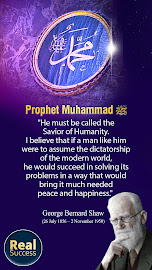Imam Abu Hanifa
HIS LIFE, OPINIONS , AND FIQH
Or
Muhammad Abu Zahra
Language: English | Format: PDF | Pages: 67 | Size: 1.5 MB
Praise belongs to Allah, the Lord of the Worlds, and peace and blessings
be upon our master Muhammad and his family and Companions. This is a
study of Imam Abu Hanifa – his life, opinions and fiqh. I first address
his life in order to understand his personality, psychology and thought,
so that I can offer the reader a true and sound picture in which the
special qualities and attributes of this Imam are revealed. Then I
examine his views on dogma, fatwas and analogy. Deriving a true picture
of Abu Hanifa from the books of history and biographies is not easy
since the adherents of his school have been excessive in their praise,
going beyond acceptable bounds, and his detractors have been equally
intemperate in their criticism. When faced with these two extremes, the
investigator who seeks only the truth may be confused and this
uncertainty can only be resolved with difficulty and great effort.
I think that I have managed to reveal a
true picture of Imam Abu Hanifa, with all its shadows and shafts of
light, and in the process of discovering it I have shed light on the
time in which he lived and mentioned some details of the most notable
contemporary sects. It is certain that he used to argue and debate with
these sects and that their opinions and ideas were much discussed at
that time. Mentioning them will clarify the spirit of the age and the
currents of thought prevalent in it.
Then I examine his opinions on politics
and dogma. This is necessary if we want to study all the intellectual
aspects of any thinker. His views on politics had an effect on the
course of his life. To ignore them would be to ignore an important
aspect of his personality, psychology, heart and thought. His views on
dogma were the clarification of all the ideas prevailing in his age and
the pure core of the opinions of those who were free of excess and
extravagance. They were a sound expression of the views of the Muslim
community. Indeed, they are the core of the deen and the spirit of
certainty. I then go on to look at his fiqh, which is the primary goal
of this study. I begin by elucidating the general principles which he
used in his deduction and which define its path and clarify his method
in ijtihad. For this I rely on what the early Hanafis wrote regarding
the principles on which they depended and the method employed by Abu
Hanifa. Concerning that I chose to be succinct rather than
comprehensive, general rather than specific, and did not go into all the
principles mentioned by the Hanafis since many of them cannot be
ascribed to the Imam and his companions but come from a later period.














































0 Comments:
Post a Comment